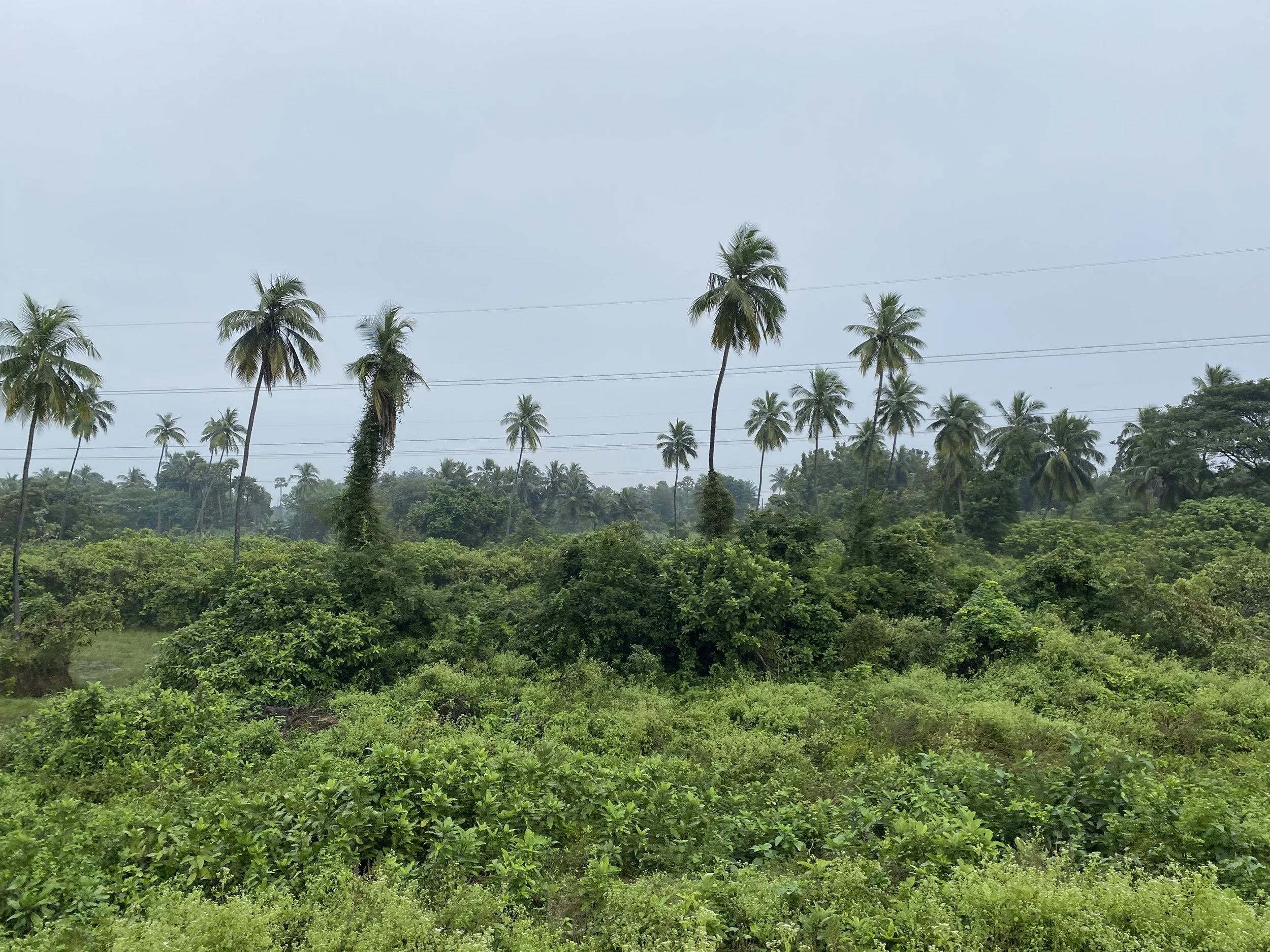Burrow of the Mind: A response to Amit Shankar Saha’s poetry in ETESIAN::BARAHMASI
Photo: Karan Madhok
‘Your book felt like the scent of passing months, layered with flowers, rain, spring and autumn—a scent that reached into the city’s deep burrows.’
To Mr Saha
The poet living in Sal Forest
It feels like the 13th month of Barahmasi, or some say Undecember. I slouch out of my burrow, because I smell the sweet scent and smoky evenings on the city surface. I would like to call it a romance with the city. The earth is mossy and cold but the festivities and warm fires inside homes stir my heart. The sky has turned phalguna; the pomegranate tree above me has new, surprising, crimson leaves. The sparrows have returned.
Your book felt like the scent of passing months, layered with flowers, rain, spring and autumn—a scent that reached into the city’s deep burrows.
I have all the time in the world, and I feel the poems at leisure, almost sniffing the seasons in its pages. Each season has a different flavour and memory. I wonder what kind of world a poet lives in? It’s either the burrow of the mind, or the surface of people running towards something unfazed.
Or maybe, the poet lives in a space that holds all seasons and dreams together.
Etesian::Barahmasi (Penprints 2024), a documentation of the seasonal songs of twelve months, is like the longing of the ragas. It is the ancient call to the spirits of the earth. Poets have romanticized about Nature as a lover, as a mystical being, as death, as a powerful force that creates, destroys, and regenerates the soul of the earth and the soil of bodies.
With the emotional state of the mind changing with the seasons, Memory is a folk singer, walking from one season to the other, singing to the lost and the weary through poetic incantations in your book. It is true that poetry invokes like mantra and surahs, the universal soul to guide us into a meditative state of being. I have felt this ease whenever I have rummaged poems and kept it under my leafy pillow.
Agrahana season. You make clouds revolve around smoke in “Once on a Smoky Afternoon”, at times microorganisms lave in stains of blue, a chrome yellow silence slips in butter fingers, and you stoop to catch the petri dish, but let it rave a bit. In other places, you urge us to hide inside a sarcophagus embalmed in time, and birth us in the afterlife fog like hieroglyphs on the hills.
In “Citrus Dream”, scented fruits spill over and fill the air around me; the grass is peppered with orange zest and you know the sun looks like the orange from your dream-like poems.
I have been searching for my lost senses back, searching for beauty to find the captivating hold of life again. Your poems have that captivating hold: they show beauty in the simplest things, beauty to reignite the magic of dreams to sleepless moles like me.
There is a poem for each day; body and things can transform into poetry; sometimes you grow back as a grass; you become Time, which passes so quickly, but never allows rest. In “Nothingness”, however, empty days become a washed-rice face lying on the grass.
Each season, I change my place of hiding. In my winter burrow, I planted shades of amber from your “Garden of Caves”. Yes, the hills are blurry from the trees and the sun sets the sky ablaze. It is so true that the earth soothes the eyes, specially the worn-out eyes of the people who are unable to see nature and fall in love with its mesmerizing “Gold flake lights”.
There is a poem for each day; body and things can transform into poetry; sometimes you grow back as a grass; you become Time, which passes so quickly, but never allows rest. In “Nothingness”, however, empty days become a washed-rice face lying on the grass.
There are wet patches near the dry lakes. When it rained, and the water filled the holes, I dug in and out. I went to the tree house and read and read “The Last Leaf”, “Interstellar”, “Absence” and “Nimbus”. But on the windowsill of an autumn house, you ask the readers, “what passport makes the Nimbus trespass the borders of the rivers?” When I look at the weeping city and sad people running and running, there you ask again, “but what if the world is borderless?” I believe in “Somewhere”, you answer these questions.
Reading the poetry is “Love Through the Reading Glass”, and it all lasts as long as you do.
You make me believe that if I wear green spectacles, carved out of wood and grass, I’ll be able to see and feel and lose myself amidst words
and birds
and trees
and breeze
and leaves and…’
everything that the world is.
From
The Green Speckled Mole
Living in the winter burrow in the
Noisy City
***
Sufia Khatoon is a multi-lingual performance poet, artist, facilitator and mentor. She is the Co-Founder of Rhythm Divine Poets community, Kolkata, and the Editor of EKL Review. She was nominated as one of the 100 Inspiring Indian Muslim Women from West Bengal by RBTC. She has authored Death in the Holy Month, which was shortlisted for the Yuva Puraskar Award by the Sahitya Akademi in 2020 and 22, and Ger-mi-na-tion (Longlisted Attaglata Bangalore Literature Prize 2022). She has been awarded with Suprabha and Santiranjan Sengupta IPPL Poetry Book Award 2023 and is also the recipient of the Amio Santa Award 2017 for her philanthropic initiatives. You can find her on Instagram: @sufiamystic and Twitter: @SufiaKhatoon.


